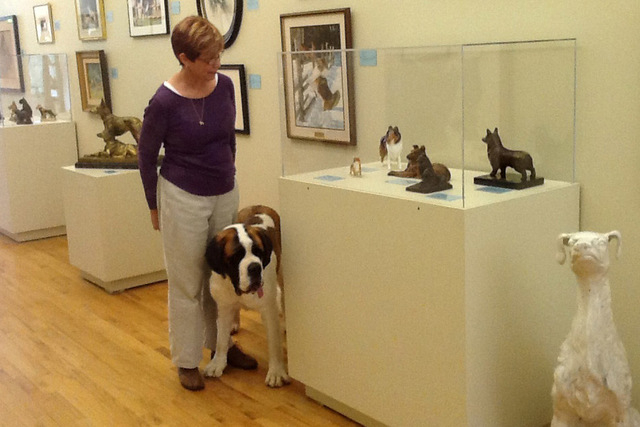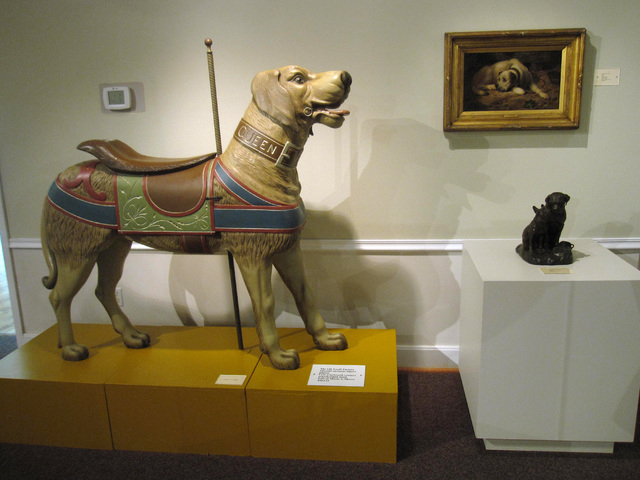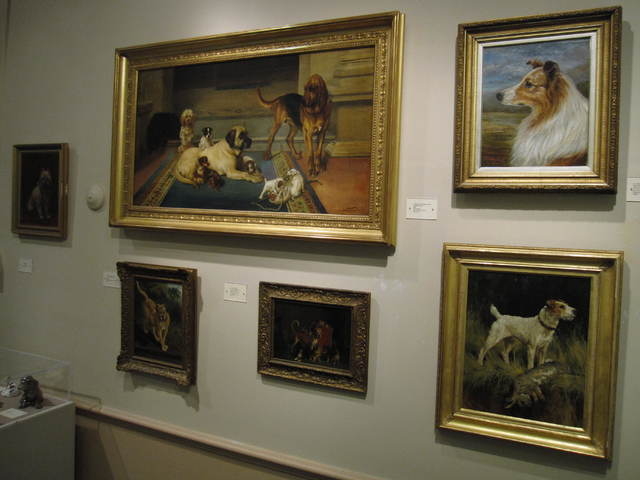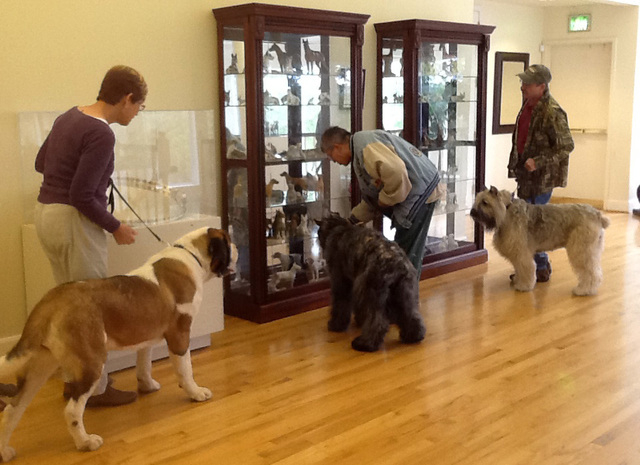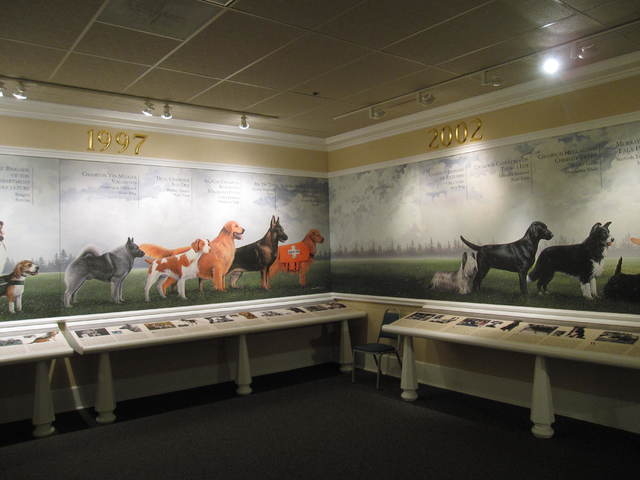Dogs welcome at American Kennel Club Museum of the Dog
ST. LOUIS — Exhibits include dog paintings, dog sculptures and displays about famous dogs. But what really makes this St. Louis museum unique is the visitors: Dogs are welcome, and curators aren’t worried about the canines knocking things over or making a mess.
“We do it and have been doing it for many years, and to my knowledge it’s never caused a problem,” said Stephen George, executive director of the American Kennel Club Museum of the Dog.
“The dogs are trained and socialized well. Little dogs, big dogs, in-between dogs. … We have dogs here virtually every day,” he said, adding with a laugh that people are more likely to cause problems in museums.
The museum, housed in an 1853 historic home in Queeny Park, is affiliated with the American Kennel Club. Its exhibits include a Hall of Fame that honors champion dogs from various competitions, along with dogs from pop culture, such as Rin Tin Tin, and service dogs of distinction, like those that have done search-and-rescue work.
The museum also hosts guest dogs so visitors can learn about various breeds, and offers space for dog club meetings and dog trainings. A lecture series includes an upcoming program Nov. 2 on Jim the Wonder Dog, who lived in Marshall, Missouri, and gained a reputation in the 1930s for supposedly being able to predict competition winners and the gender of unborn babies.
The museum was founded in 1982 in New York City, but moved to St. Louis a few years later. George, who took over the museum about a year ago, says the museum still relatively unknown. It attracts about 10,000 visitors annually, but he hopes to broaden the outreach.
One of the most striking things about dog paintings is how hard it is to guess their age. When art depicts people or objects, there are often clues to the era from dress or decor. But a dog painted in the 19th century may not appear all that different from a dog painted in the 21st century.
The museum relies on donations and bequests, and it doesn’t claim to have a comprehensive survey of famous dog art — there are no William Wegman weimaraners, or Cassius Marcellus Coolidge’s images of hounds playing poker. But it does have some noteworthy pieces, including Maud Earl’s “Great Dane at the Seashore,” and several 1830s works by Edwin Landseer, who painted Queen Victoria’s dogs.
There are also unusual artifacts: century-old dog collars, a carved canine from a 19th century carousel, even antique dog toys.
As for the numerous displays of porcelain figurines, George says they are all fine art — including Royal Doulton pieces — not the “kitschy stuff” found in gift shops or grandma’s curio cabinet.
“There are a lot of works that people don’t understand that we have here, so it’s an awakening experience for a lot of people,” he said.



